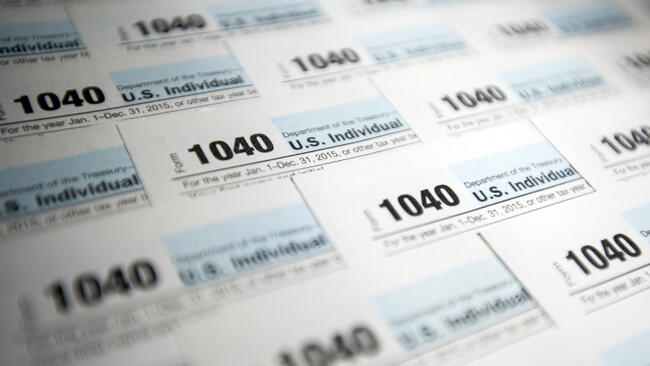Serving up hope
Serving up hope
Serving up hope

For the past two months, Jeanine Perla has been cooking up quite the menu of delectable dishes and fine cuisine.
Stuffed cabbage rolls.
Eggroll in a bowl.
Cheese-filled pierogies.
Are you hungry yet?
“I’ve been treating us like I’m our own personal chef,” says Perla, who lives in the western suburbs of Chicago with her longtime boyfriend, Darrin. “I plan out every breakfast, lunch and dinner of every week.”
Of course, in a perfect world — or, in a normal world — Perla would prefer to be preparing, plating and providing this type of fare for her patrons rather than at home to be put on her own kitchen table.
“But the pandemic changed things,” Perla says.
Now Perla, a culinary veteran on furlough since March, is changing the way she views her financial future.
Just prior to the COVID-19 outbreak, and before social distancing measures and shelter-in-place orders were being implemented across Illinois,1 Perla and Darrin closed the small catering services company they owned together. After three years of hosting private parties, corporate luncheons and special events, they were ready to weigh their professional options and start from scratch in the same field.
“Things were going great, but I had this feeling in my gut to test the job market,” says Perla, 38. “My overall well-being is better off without having to deal with all the stress of running your own business.”
Instead, Perla is dealing with the stress of trying to live off only one household income amid the coronavirus crisis — an unexpected reality that more than 50% of American families are currently facing.2
Soon after the couple shut the doors on their collective food venture, Perla landed a position as a catering sales manager at a popular café in Oakbrook Terrace while Darrin was hired by a local brewery to help launch its on-site restaurant. With two reliable jobs and two dependable salaries, they set their sights on relocating closer to the city and buying a house together at the end of the spring.
“We got lucky,” Perla says. “We were both buzzing with energy and having success.”
But that excitement didn’t last long.
Three weeks after walking into a venue that was “rocking and rolling,” Perla walked out with an uncertain future.
“Everything is up in the air,” says Perla, who was placed on an indefinite furlough like millions of other Americans.3 In fact, as coronavirus began to spread and cause disruption, the majority of job losses in the U.S. were related to the hospitality industry as many establishments were forced to reduce labor.4
“I’m staying level-headed,” Perla adds. “I’m thankful we’re safe and healthy.”
While they’ve put their house-hunting on hold until later this year (“We’ll do what we can to make that happen,” Perla insists), the couple has shifted their focus to handling their more pressing financial priorities.
As Darrin is designing the brewery’s kitchen layout and creating its food menu from home, Perla is doing her best to limit their spending.
That means not purchasing big items, avoiding takeout for meals and sticking to a strict monthly budget. Besides rent, bills and utilities, most of their earnings are reserved for the grocery store. Plus, they socked away most of their $1,200 stimulus checks and deposited those funds into their joint money market savings account.5 In Perla’s mind, they “don’t want to touch that” to cover their basic needs.
“We’re pinching pennies,” says Perla, who did not qualify for unemployment because she’s only been with her current employer for a short stretch. “I’ve set up a routine where our expenses are pretty modest.”
Perla says she and Darrin have also gained a different perspective when it comes to their outlook toward retirement.
For example, when they owned their small business, they didn’t have direct access to a workplace retirement plan. On top of that, because their income would typically fluctuate, Perla admits they would save every month to take one nice vacation each year rather than earmark much for their next adventure.
“The pandemic has made us assess what’s important,” says Perla, who is enjoying her retirement-like lifestyle and volunteering, exercising and baking in her free time. “I have a renewed sense of urgency.
“If this is what retirement feels like, I want to retire early.”
And that’s Perla’s goal moving forward.
Perla and Darrin will both become eligible to enroll in their company-offered 401(k) plans after fulfilling their waiting period (one year for Perla and three months for Darrin). In addition to their own contributions, they’ll also be able to receive their employer match to help them keep building their balance.
Like 77% of individuals enduring a similar situation, though, Perla first wants to return to building the career she loves.3
“Americans love going out to eat,” Perla says. “Our lives will get busy again. I feel fortunate to be a part of the restaurant industry — and how we’re going to bounce back.”





